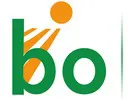It's a green light for a temporary Maximum Residue Limit (MRL) for the sprout inhibitor, chlorpropham. That level may be 0.4 mg/kg in ware potatoes. A European Union Standing Committee agreed to this in a digital vote. The temporary MRL is expected to take effect around the summer of 2021.
The exact starting date depends on further decision-making within the EU. The current 10.0 mg/kg MRL will remain in force. That's until the temporary MRL comes into effect. The use of Chlorpropham use has been banned. But, ware potatoes will still be delivered under the current MRL. That's in the 2020/2021 season.
The Standing committee for Plants, Animals, Food, and Feed (SCoPAFF) decided on this temporary MRL. They did so in an online meeting. The Netherlands is one of the countries that has worked hard for this. This decision will be reviewed by the European Council and the European Parliament. The official publication will follow in three to six months.
The temporary MRL will become effective six months after publication. An exact starting date is, therefore, not yet known. It's, however, expected to be around summer next year. Until then, the current MRL of 10.0 mg/kg will remain valid. Ware potatoes imported from outside the EU will soon have to meet this temporary MRL too.
Many arable farmers used to use germinating agents based on chlorpropham. That means residues of the agent are present in many storage facilities. Chlorpropham use has been disallowed since July this year. Sometimes the EU decides not to re-authorize the use of a substance.
Then it's MRL is usually reduced to 0.01 mg/kg. That could cause problems for ware potato growers. There's a risk of cross-contamination in storage sheds where farmers used chlorpropham. This temporary MRL, and following the cleaning protocol for storage sheds, provides a solution for that sector.
BO Akkerbouw is an arable farming organization in the Netherlands. Its director, André Hoogendijk, says, “This issue caused concern throughout the sector. BO Akkerbouw has a Germination Inhibition Taskforce. It includes members from various Dutch agricultural, potato, and potato processing organizations. They worked hard to find a solution, together with their European partners. Alternative means of storage are now available. And there's a cleaning protocol for storage buildings. Now there's clarity about the temporary MRL, the sector to go ahead."
BO Akkerbouw recently set up a decision tree for the use of alternative germination inhibitors during storage. Last spring, BO Akkerbouw, and its members informed the sector about the cleaning protocol. BO Akkerbouw's Germinhibition Taskforce aims to have ware potatoes delivered and processed regularly.
Concerning ware potatoes for processing, this objective has been achieved. That's thanks to the current decision-making process and the implementation of the cleaning protocol. But, there's still a problem - inhibiting germination during the export of ware potatoes to distant destinations. For now, there's no solution.
For more information: Brancheorganisatie Akkerbouw
Brancheorganisatie Akkerbouw
80 Louis Braillelaan
2719 EK, Zoetermeer, NL
Tel: +31 (0) 793 030 331
Email: info@bo-akkerbouw.nl
Website: www.bo-akkerbouw.nl
